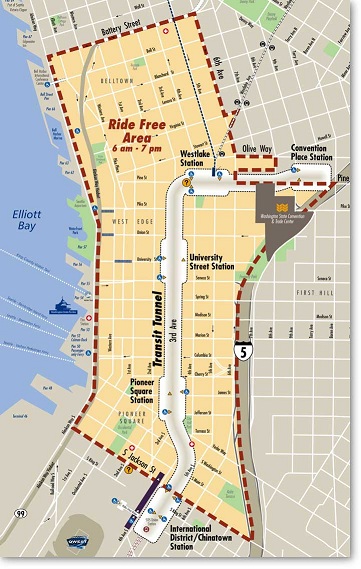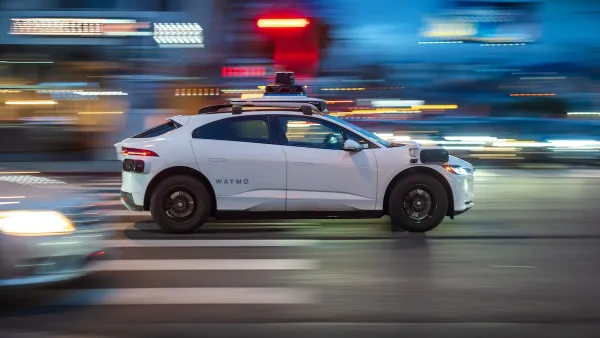A recent "political compromise" forces Metro to phase out the City's highly popular free bus service that serves over 10 million riders per year.
According to Metro, about one-third of daily 9,000 bus riders are unpaid passengers. The rest either have prepaid passes or transfers.
Scott Gutierrez reports:
"Seattle pays King County about $400,000 a year to offset fares that Metro would otherwise collect. But that amount has been the same since the agreement was reached in 1973. It costs Metro about $2.2 million to operate the ride free zone."
"Republicans on the county council, including Kathy Lambert, Jane Hague and Reagan Dunn, had called for doing away with the zone or renegotiating for a higher fee from Seattle. The decision to eliminate the ride free zone helped sway Hague and Lambert to join five Democrats in agreeing to pass a two-year $20 "congestion reduction charge" that will provide about $25 million annually for bus service. The council's Democrats need a supermajority to pass the fee without having to send it to voters, but all four Republicans had been opposed until now. The vote is scheduled for Monday."
Buses in Ride Free Area run north-south from Battery Street to South Jackson Street, and east-west from 6th Avenue to the waterfront.

Planetizen Federal Action Tracker
A weekly monitor of how Trump’s orders and actions are impacting planners and planning in America.

Restaurant Patios Were a Pandemic Win — Why Were They so Hard to Keep?
Social distancing requirements and changes in travel patterns prompted cities to pilot new uses for street and sidewalk space. Then it got complicated.

Maui's Vacation Rental Debate Turns Ugly
Verbal attacks, misinformation campaigns and fistfights plague a high-stakes debate to convert thousands of vacation rentals into long-term housing.

In California Battle of Housing vs. Environment, Housing Just Won
A new state law significantly limits the power of CEQA, an environmental review law that served as a powerful tool for blocking new development.

Boulder Eliminates Parking Minimums Citywide
Officials estimate the cost of building a single underground parking space at up to $100,000.

Orange County, Florida Adopts Largest US “Sprawl Repair” Code
The ‘Orange Code’ seeks to rectify decades of sprawl-inducing, car-oriented development.
Urban Design for Planners 1: Software Tools
This six-course series explores essential urban design concepts using open source software and equips planners with the tools they need to participate fully in the urban design process.
Planning for Universal Design
Learn the tools for implementing Universal Design in planning regulations.
Heyer Gruel & Associates PA
JM Goldson LLC
Custer County Colorado
City of Camden Redevelopment Agency
City of Astoria
Transportation Research & Education Center (TREC) at Portland State University
Camden Redevelopment Agency
City of Claremont
Municipality of Princeton (NJ)






























